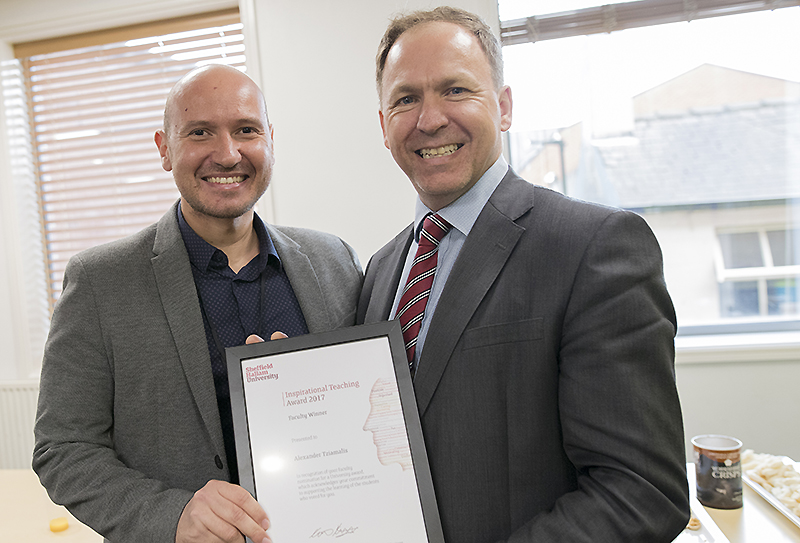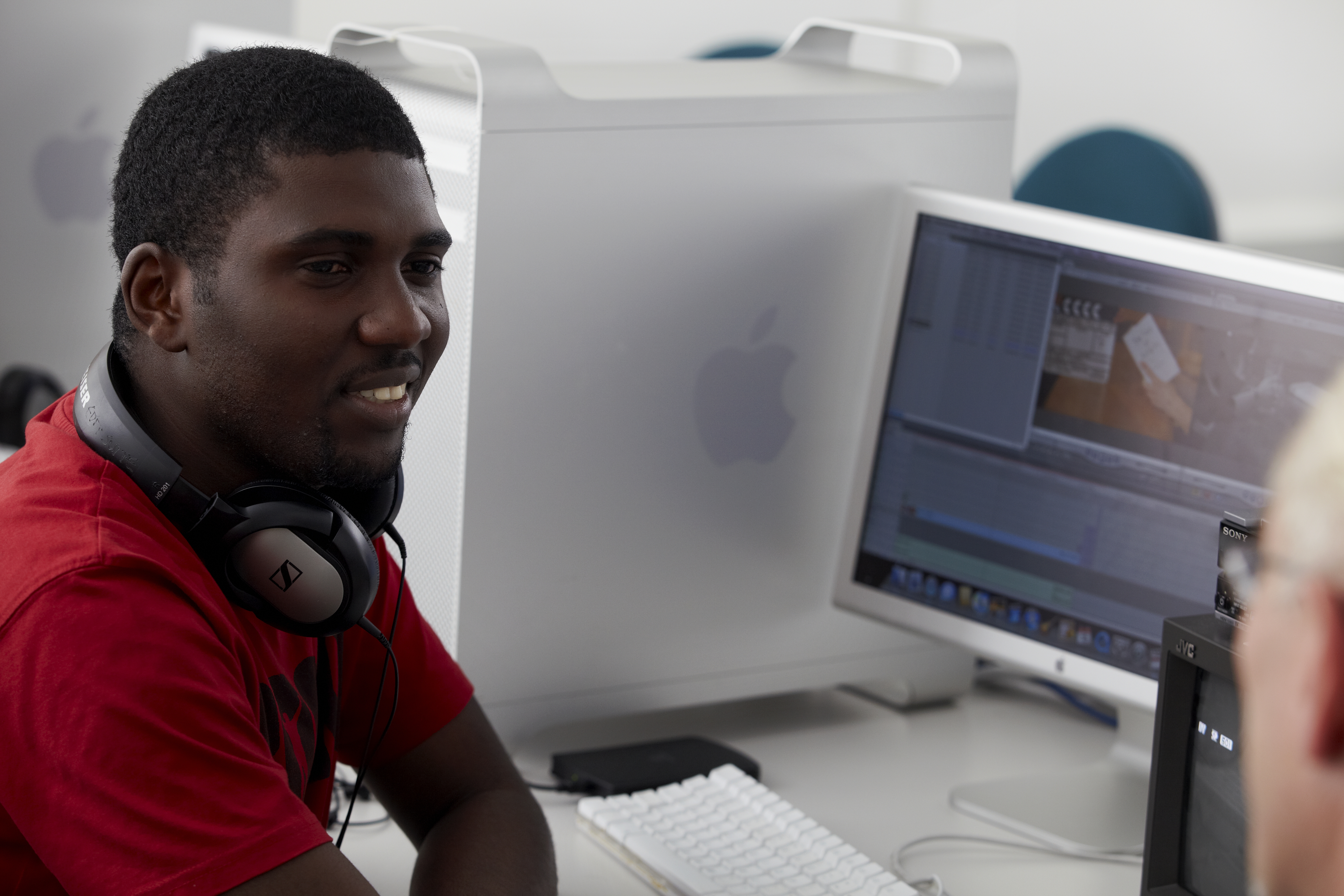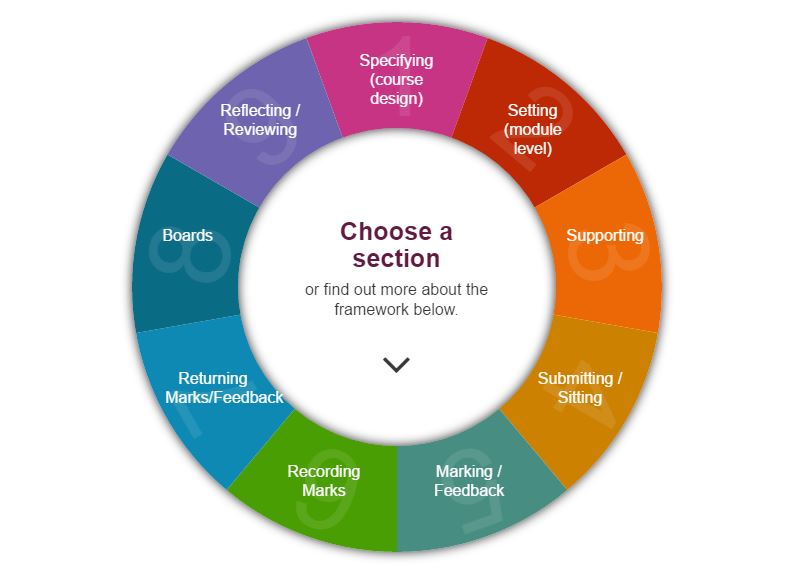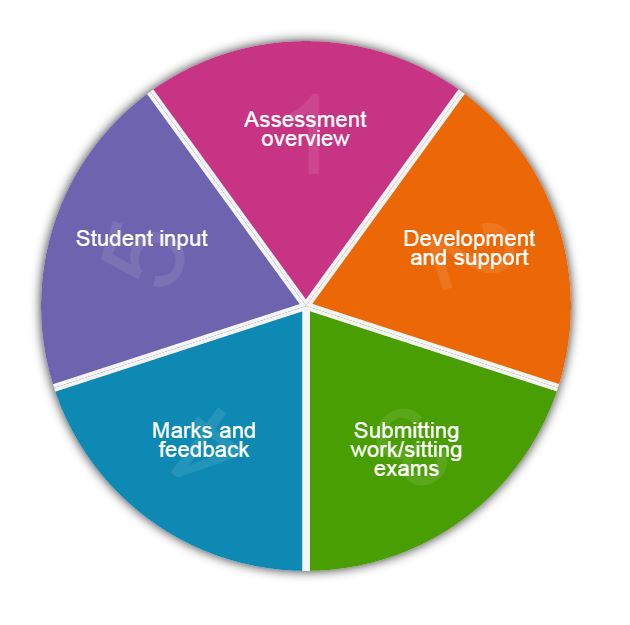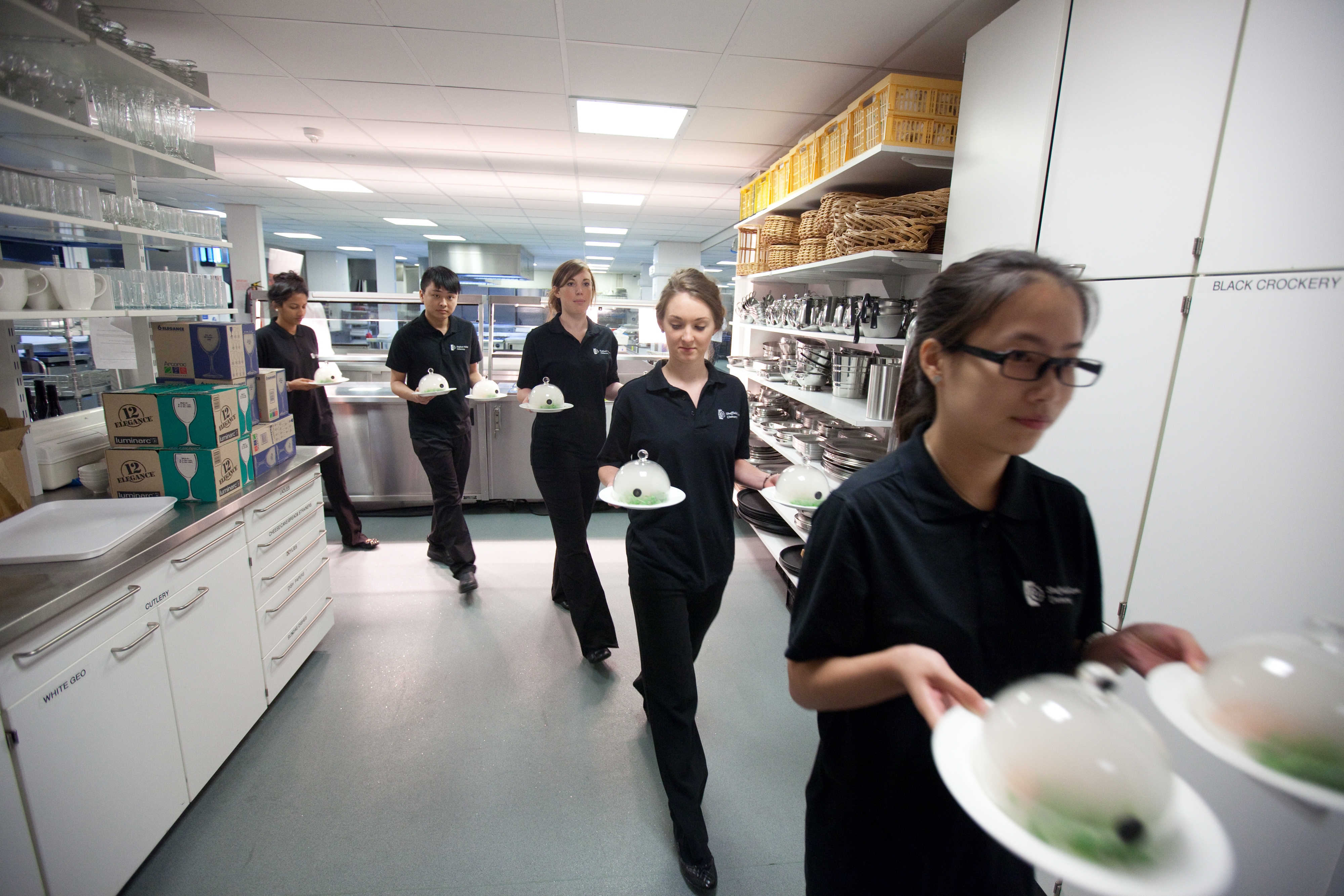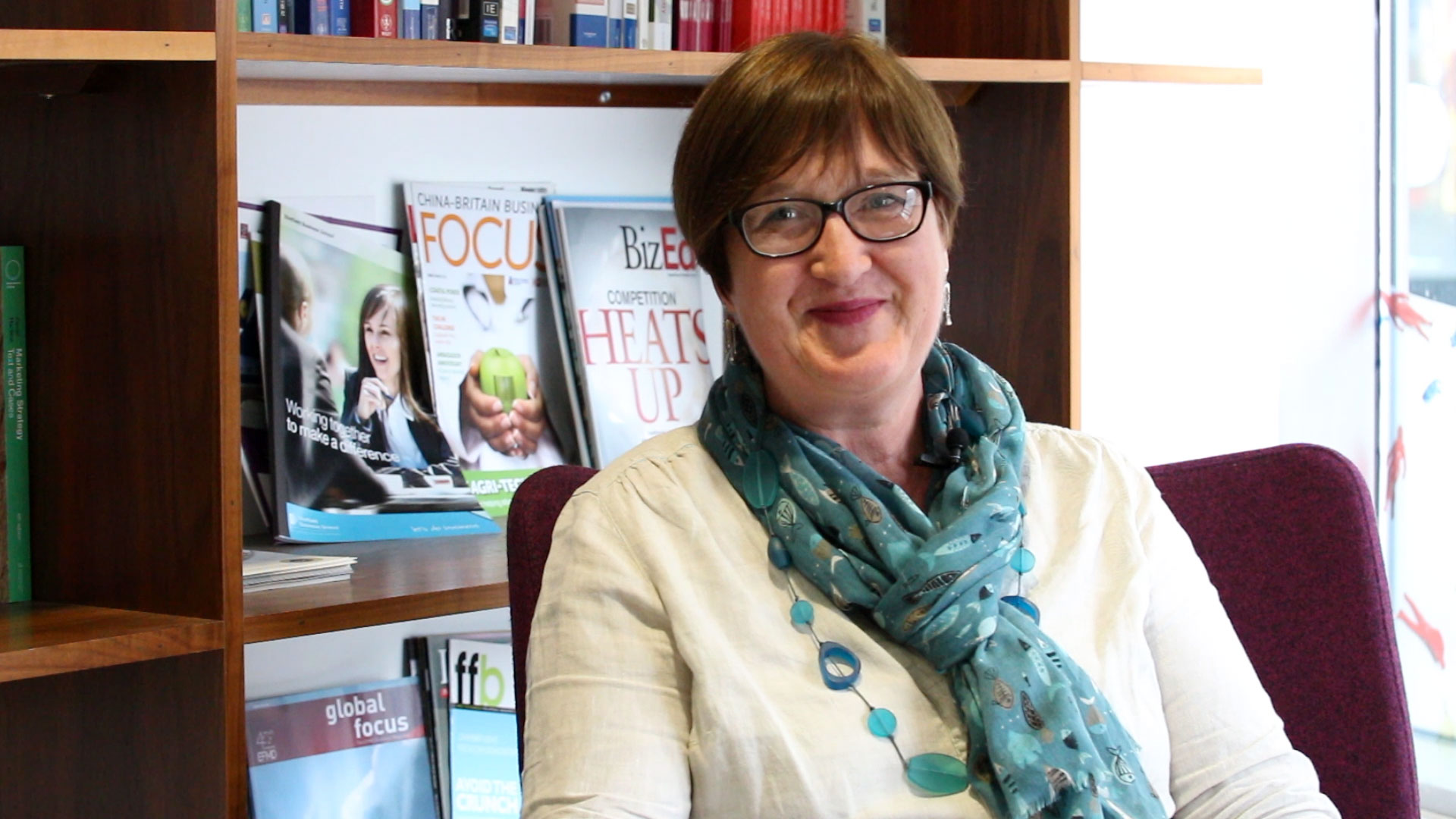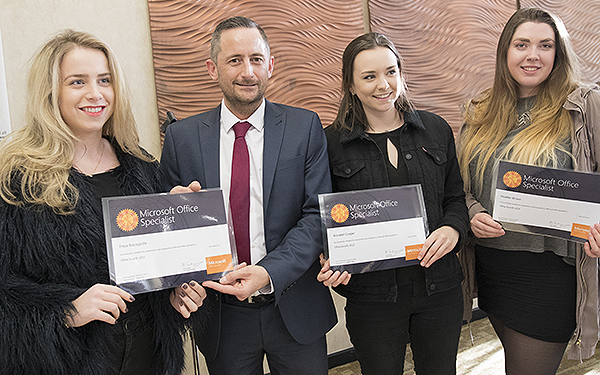
Students receive their certificates from Andrew Lenehan, Regional Account Manager at Prodigy Learning.
Students celebrate attaining their Microsoft Office Specialist awards in Excel
The Finance, Accounting and Business Systems (FABS) have been organising and delivering the Microsoft Office Specialist (MOS) Certification for a range of over 25 SBS Undergraduate (UG) courses, across all Departments, including Accounting and Finance, Business Studies, and Events Management.
The story started with the introduction of MOS in the Data Analysis for Business Decisions module some four years ago. The feedback received from students, after completing their placements, was that this was an extremely useful qualification, with employers preferring students with an internationally recognised qualification. Feedback from employers and students returning from work placements has been that Microsoft Office skills are some of the most valuable skills a student can bring to a placement. Jayne Revill, Module Leader for Data Analysis for Business Decisions and E-Learning co-ordinator for SBS recognised an opportunity and thought of extending the provision of this qualification to all students in FABS. This has been done successfully and it was time to take MOS SBS wide. Working with Lucian Tipi, then Subject Group Leader for the Business, Operations and Systems subject group, a proposal was devised to extend the MOS offer to a broad range of SBS courses. Lucian discussed and agreed with the HoD’s of Management and SSM the proposal and in 2016-2017 MOS training was rolled out to over 25 SBS UG courses. The delivery of the MOS programme was carried out by over 20 FABS staff and a large number of colleagues from the other 2 departments.
This roll out of MOS across SBS has resulted in over 400 UG students completing successfully their Core or Expert Certification, making SBS the largest provider of Microsoft Office Specialist (MOS) exams in England.

Over 100 students attended the evening to receive their certificates.
A celebration event was organised and over 100 students attended to celebrate their success in achieving the globally recognised Microsoft Office Specialist (MOS) Certification at an awards event on the 5th April 2017. David Laughton, Assistant Dean for Academic Development in SBS and Andrew Lenehan, Regional Account Manager at Prodigy Learning, Microsoft’s partner in the UK responsible for managing MOS, gave speeches congratulating the students and the SBS staff for their achievements. The event was organised by Jayne Revill, who congratulated some very happy students, while they received their official Microsoft certificates from Andrew Lenehan.
Jayne Revill commented that students have excelled this year and the feedback from employers has been very positive, saying:
‘We know that employers really value our students having job ready skills, including proficient working knowledge of Microsoft Office programs, one of our key areas of focus as a business school is on the employability of students. The MOS project was brought about following feedback by host employers and students alike, that having advanced skills in Office products makes our students stand out and enhances their earning potential significantly. One employer even said that a MOS certification can be the difference between pay grades for graduates. We are immensely proud of the results of our students and felt that this awards night was a fitting way to congratulate them on their achievements. This will become an annual event at the university’.
David Laughton illustrated the importance of an applied offer to students, that includes not only excellent academic products, but also internationally recognised, industry qualifications, that students can use to differentiate themselves in the job market, further adding to their employability.
Lucian Tipi, currently Interim Head of FABS said:
‘The FABS Department is leading the way in SBS in terms of the delivery of large scale, industry standard certifications for students. The MOS certification is the largest such certification that we provide and it is set to grow further in the future. We will plan the introduction of MOS Master in our future provision, to further enhance the employability of our students’
Andrew Lenehan, added:
‘It was an honour to be invited to this event, Sheffield Hallam Business School have had a tremendous year with MOS and it is great to see so many students here to accept their certificates. MOS certification will really set these students apart from other graduates in the jobs market. Microsoft Office is the world’s number one office software and is used in most companies around the world and when applying for jobs these students can send potential employers a digital transcript proving that they have the skills needed in today’s competitive jobs market, standing head over heels above those CV’s who simply state ‘I am proficient in Microsoft Office’ for these students, it’s Microsoft, confirming they have the skills, not simply their own opinion of themselves. I’d also like to congratulate Jayne and her team on getting so many students through their exams, it is a testament to the focus on employability and the dedication of the staff in ensuring that students not only achieve a fantastic degree from a top university but they also have additional qualifications at the end of their university career’.
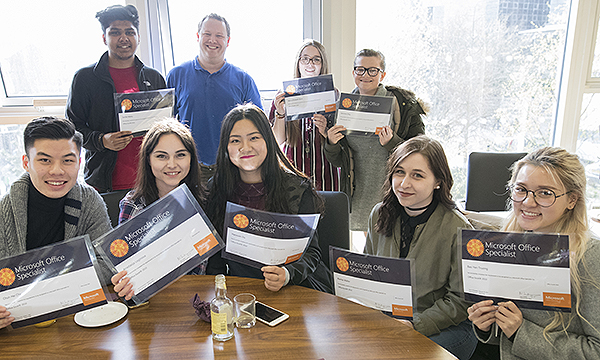
Students celebrate their achievement.
Like this:
Like Loading...




